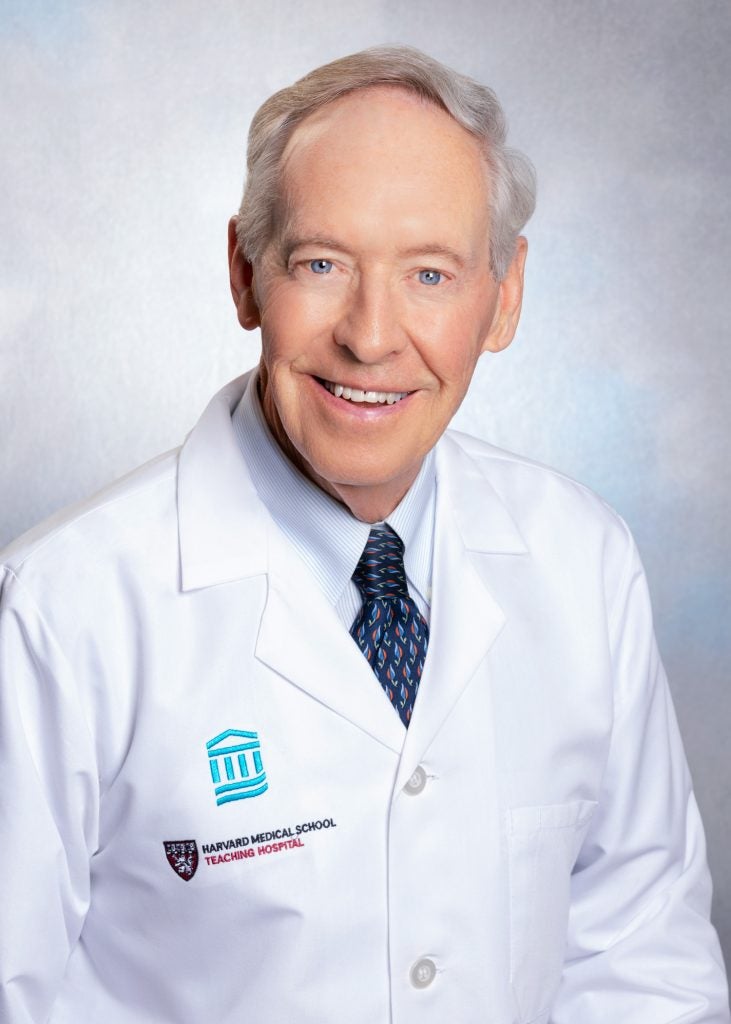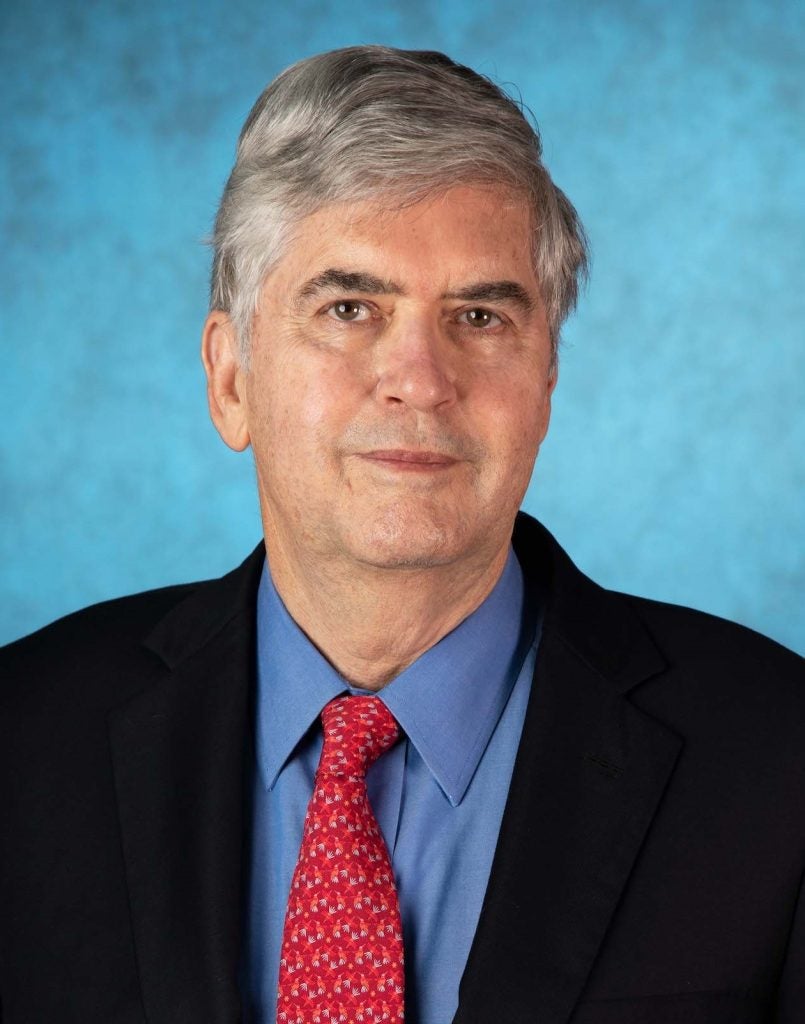It has been over 100 years since Dr Alois Alzheimer reported “a peculiar severe disease process of the cerebral cortex” affecting 50-year-old Auguste. Dr Alzheimer looked at Auguste’s brain after her death and discovered plaques and tangles, now referred to as amyloid and tau. For decades, specialists have theorised that these are the primary cause of Alzheimer’s disease but it was only very recently that this theory was proven.
Dr Dennis Selkoe, the Vincent and Stella Coates Professor of Neurologic Diseases at Harvard Medical School, says it is great the theory has been proven but there is still a way to go. “We haven't figured out all the nuances,” Selkoe explains. “But we have tremendous evidence that people who make too much amyloid or make a certain form of it are very likely to get Alzheimer's.”

While there are some biological risks of developing Alzheimer’s including having an allele of apolipoprotein E (APOE) gene on chromosome 19, many specialists believe the biggest risk of developing the disease is age. Dr George Perry, a professor of biology and chemistry at the University of Texas, San Antonio and a recognised researcher in the field of Alzheimer's disease says that for some, Alzheimer’s is just a symptom of ageing. “For many of us, it will be part of the last phase of our life. If we live to advanced age, we will have mental decrement,” Perry says.
Current treatments have proved a theory but there are still concerns
Two years have passed since Aduhelm (aducanumab) was approved by the US Food and Drug Administration (FDA), being the first therapy that demonstrated that removing amyloid from the brain reduced cognitive and functional decline in patients with early disease. Since then, Leqembi (lecanemab) and donanemab have also been shown to be effective in treating those with early disease, with more amyloid treatments in the pipeline.
Dr Andrew Saykin, director of the Indiana Alzheimer's Disease Research Centre, says that amyloid treatments have marked a huge advancement in the field. “Finally, after over 500 failed clinical trials, we have drugs that actually met their endpoints,” Saykin says. “Not only did they clear amyloid from the brain, they also slowed the course of progression. That's a huge advance and it's about time.”
While researchers agree that it is great to see marketed treatments that slow progression, some argue they are not massively effective in tackling the disease, especially considering they can only be used in early Alzheimer’s. “The idea that the abnormalities of the disease, plaques and tangles, are the cause is okay from a simplistic point of view, but it hasn't led to anything,” Perry says. “The current treatment is not very effective.”
Dr Stephen Arnold, neurologist at Mass General Research Institute and professor at Harvard Medical School says that the efficacy of anti-amyloid treatments would suggest amyloid is not the only cause. “While you slow down the progression of the disease, the disease still progresses,” Arnold explains. "That suggests there are other factors.”
In addition, Saykin notes that effective treatments will help researchers discover the significance of other causes. “We’re entering a new paradigm where we will be able to study the impact of intervening in beta-amyloid and other biological pathways involved in the disease,” Saykin explains. “That's going to provide new insights. If we suppress amyloid, then we are likely to see biological changes that were not apparent previously.”
One concern with amyloid treatments is adverse events suffered due to ARIA-E. In Lilly’s Phase III trial of donanemab, two participants died, with both deaths attributed to ARIA. A third participant died after an incident of serious ARIA. “The safety concerns, for ARIA especially, are significant,” Arnold says, adding that the treatments are tremendous scientific advances but not necessarily tremendous clinical advances.

Amyloid and tau remain the top theories, but other MOAs are in development
Many drugs with alternative mechanisms of action (MOAs) are in the pipeline but are at very early stages. One novel idea being developed at the Weizmann Institute of Science in Israel by Dr Michal Schwartz is the use of checkpoint inhibitors, which have shown promise in pre-clinical models. The model is similar to immunotherapy in cancer patients but instead the T-cells target amyloid.
Dr Tomasso Croese, an employee of Professor Schwartz’s research group, says: “For clinical data showed with our approach, we reduce amyloid, both in the form of plaque and soluble amyloid. Most trials now with amyloid either target fibrils, oligomers or plaque and there are different antibodies targeting different stages of amyloid deposition.”

One model that could help in meeting high demand is an Alzheimer’s vaccine. Florida-based Vaxxinity has just completed a Phase IIa trial of its candidate UB-311. The results show the candidate was generally safe and well-tolerated, with early clinical data demonstrating a trend for slowing cognitive decline in mild Alzheimer’s. CEO of Vaxxinity Mei Mei Hu says: “We target aggregated amyloid but instead of injecting passive antibodies into patients on like a monthly basis like Leqembi or donanemab, we get the body to do the work. We turn your body into its own bioreactor and teach immune systems to produce these antibodies to neutralise toxic amyloid.”
Gamma secretase modulators (GSMs) are another novel idea that have shown promise in pre-clinical models. GSMs act by shortening a-beta peptides to stop them from forming toxic aggregates. Models suggest that GSMs may even function as inhibitors of aggregation. Selkoe says: “They could shorten the beta-amyloid peptide, instead of 42, or 43 amino acids, it could be 37, 38, 39, which is not as prone to forming plaques.”
Arnold believes that these kinds of novel therapies may, if approved, be complimentary to anti-amyloid therapies. “They may provide some synergy in terms of efficacy but we need to put them into people and figure that out,” Arnold says.
Another current unmet need for patients is a quick, easy and affordable route to diagnosis. At the moment, most patients have a positron emission tomography (PET) scan which is both time-consuming and costly. Sunbird Bio is about to start first-in-human trials of a blood test which they say can detect Alzheimer’s. Executive chair, John McDonough, says that if successful, he hopes that this test will be used in a routine blood draw. “Biologically what happens is that sticky beta amyloid binds to these exosomes and passes through the blood brain barrier,” McDonough says. “We have a test that can detect the presence of the exosome with the protein, which shows that we're detecting the aggregated state.”

Saykin states that using blood tests and other biomarkers for early detection alongside anti-amyloid therapy will be beneficial but emphasises the disease needs to be detected early on for effective treatment. “Ultimately, we want to prevent the disease, and to do that we need to identify the changes happening in the brain a decade or two earlier that drive the amyloid and tau pathology in the first place. That’s the next grand challenge.”
Although there are many novel MOAs in development for treatment, the options for prevention look to many specialists to be more promising. “You want to be able to treat people if they fall but the way to have the biggest impact on society is going to be in the prevention mode,” Hu says. “That requires something that is accessible, scalable, and efficient and that's where the vaccine approach comes in.”
If treatment is used, the disease needs to be identified quickly to allow intervention at an early stage to have the best effect, but most researchers agree that it is not as attractive as prevention. “You'll need to treat early and you'll need to treat very carefully,” Selkoe adds. “When a real agent comes around, you can defeat it and that's active vaccination.”
A cure will be difficult but maybe not impossible
Some would say no, there will never be a cure, while others remain optimistic. The difficulty is defining ‘cure’ for a disease like Alzheimer’s. “What a cure means to me is bringing people back closer to normal and having them stable for long time periods,” Perry believes. “No one has come anywhere close to that but that doesn't mean it won't happen.”

Arnold believes vaccination is a viable option if the disease is caught early however, he also believes that treatment could bring people back but that it will not be easy to get there. “Can we actually improve the cognitive flow out of the brain?” Arnold asks. “That's an interesting question and not impossible I believe, but it’s a big ask.”
While McDonough says: “Ultimately, we're going to eliminate this disease but I think it's going to take a long time but we are making such rapid progress now.” While Selkoe remains cautiously optimistic. “We won't cure everyone but I am quite optimistic, even though it isn't perfect yet,” he says.









